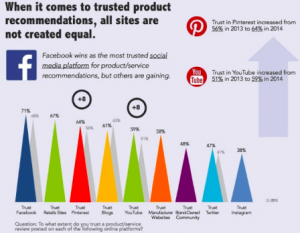To be a successful leader and manager, you have to condition yourself to let go of all the control you used to have when you were just one individual worker responsible for your own individual job. Control, like many other important character traits, is either forgotten, ignored or unknown by too many managers today.
We have an epidemic on our hands that’s been culminating for too long: bad managers. Some think people are born to lead and manage others and others believe you acquire these skills. I believe in both, but more importantly, I believe bad managers can change if they are willing to and genuinely want it and for the sake of performance management, I hope they do. So, I’m going to talk about three habits of bad managers and what those who are willing to and genuinely want to can do to improve.
Habit #1: You Don’t Know Your People
Can you name a strength for each person on your team? If you said no, keep reading. Managers who don’t take the time to know their people, personally and professionally, miss out on valuable relationship building and with it, foregone benefits that lead to a high performing team. For instance, in a recent survey, 71% of surveyed employees who believe their managers can name their strengths “feel engaged and energized by their work.” Knowing your team goes beyond performance. Being able to also connect with them about personal matters will build trust and rapport and show them that you care about them in a capacity that isn’t just as a means to an end.
- Fix it: Getting to know your employees is just like getting know a friend. Be sure you’re communicating regularly with them. Incorporate a variety of communication mediums like face-to-face, email, and instant message. Even just stopping by their desk at random times to check in on them or provide some words of encouragement goes a long way. Make yourself accountable by setting up tasks with reminders for each employee you manage.
Habit #2: You Don’t Communicate With Your People
You may think you’re a good communicator, but let’s be honest, our own self-awareness can be very skewed. That’s why we have to keep checks and balances for ourselves. Lack of communication isn’t just something bad managers should improve on, it is literally the most basic function of their job to communicate. Did you know, according to ClearCompany, 86% of employees believe lack of collaboration and ineffective communication are the cause of workplace failures?
- Try this: Similarly to habit #1, fixing this problem doesn’t have to be hard. Managers should be communicating regularly with their teams. That means formal and informal meetings weekly or biweekly and, at the very least, monthly. Understanding how to communicate effectively with individual employees is very important to getting the right message across so it helps to become attuned to different communication styles. Getting to that point is completely reliant on will power. So, good luck!
Habit #3: You Micromanage
This is tough subject, because, well, we’ve all micromanaged and been micromanaged at some point in our life. It’s tricky because, especially for new managers, it’s hard to realize you’re a micromanager. If only we could step outside our bodies and watch it unfold for just a single day, we would quickly see how annoying and destructive that kind of behavior is to employees (everyone really). If you’ve done what you can to improve habits #1 and #2, don’t sabotage all that relationship building by acting as if you don’t trust your people to do their jobs correctly.
- Just do this: Breaking this habit is not easy. It takes considerable effort and a strong need for self-awareness, but the benefits of ridding yourself of it with be wholly worth it. Keep track of how much and what kind of feedback you’re giving your team regularly. Pay attention to if you find yourself hovering over employees and giving unsolicited advice.
Be sure that the performance feedback you give is at the appropriate time and through the appropriate medium. For example, if you need a large chunk of a business proposal restructured, don’t drop that bomb on your staff 5 minutes before they’re about to clock off and make sure the time you give them to fix it is realistic. One last thing: remember that positive feedback has a stronger influence on performance than does negative. You want to provide your employees with a healthy balance of positive performance feedback and constructive criticism.
Learn From Your Mistakes
The absent boss, the quiet manager and the micromanager have haunted workplaces for years, but with a justifiably picky workforce and the heavy influence of work relationships on performance, companies really can’t afford to tolerate poor management. Let’s fix this epidemic by learning from our mistakes, trying new things and increasing our self-awareness. This failure to make effective performance management decisions has wreaked havoc on perfectly good teams for too long.
Business & Finance Articles on Business 2 Community(76)
Report Post



